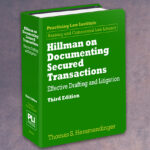
Court Grants Severance To Fulton County Defendants In Testy Discovery Hearing
//
 It was a wild morning in Fulton County, even before the 10am discovery hearing in front of Judge Scott McAfee for attorneys Ken Chesebro and Sidney Powell.
It was a wild morning in Fulton County, even before the 10am discovery hearing in front of Judge Scott McAfee for attorneys Ken Chesebro and Sidney Powell.
Before 9, the judge dropped an order severing the 17 other RICO defendants from Chesebro and Powell, who have asserted their speedy trial rights and are scheduled to begin jury selection on October 23.
googletag.cmd.push( function() { // Display ad. googletag.display( "div-id-for-top-300x250" ); });“The precarious ability of the Court to safeguard each defendant’s due process rights and ensure adequate pretrial preparation on the current accelerated track weighs heavily, if not decisively, in favor of severance,” Judge McAfee wrote, adding that “additional divisions of these 17 defendants may well be required.”
 Sponsored Survey Results: A Perspective On The Private Markets Ontra surveyed over 400 private markets professionals about what to expect this year and their legal process pain points. From Kerry G. Benn, Ontra
Sponsored Survey Results: A Perspective On The Private Markets Ontra surveyed over 400 private markets professionals about what to expect this year and their legal process pain points. From Kerry G. Benn, Ontra The court set a December deadline for members of this second cohort to file severance motions from each other, but declined to stay proceedings with respect Mark Meadows, Jeff Clark, and fake electors David Shaffer and Shawn Still, who are seeking to remove their cases to federal court, reasoning that it might take months to resolve the issue at the 11th Circuit, and “the arguments within [state discovery] motions should mirror whatever would be filed if this case is removed, lessening concerns regarding unnecessarily expended resources.
This cut the legs out from under Mark Meadows, who requested an emergency stay from the 11th Circuit on the theory that he might be forced to go to trial in Fulton County in a matter of weeks. And indeed Meadows withdrew the emergency petition immediately, conveniently getting out from under a panel consisting of three judges appointed by Democratic presidents who seemed inclined to rule that the statute does not authorize removal by a former federal official.
googletag.cmd.push( function() { // Display ad. googletag.display( "div-id-for-middle-300x250" ); }); googletag.cmd.push( function() { // Display ad. googletag.display( "div-id-for-storycontent-440x100" ); }); googletag.cmd.push( function() { // Display ad. googletag.display( "div-id-for-in-story-youtube-1x1" ); });But while the 17 defendants had a good morning, Powell and Cheseboro lost their bid to sever their cases from each other and will go to trial together next month. Each of them had sought to exclude evidence of “prejudicial” charges against their co-defendants, seemingly oblivious that prejudice to co-defendants is kind of the point of Georgia’s sweeping RICO statute. But in the event, Judge McAfee ruled that the unrelated nature of the charges against them is an argument in favor of joinder, not severance, since neither will be presenting a defense antagonistic to the other:
By emphasizing that they have been charged for “different, albeit related, crimes, and [that] the evidence against them for those crimes was distinct, such that it is not likely that [Powell would be] convicted solely due to her association with [Chesebro],” Defendants have reduced any concern for “spillover” evidence or juror confusion.
[…]
Finally, as the State pointed out in rebuttal and supplemental briefing, the State is entitled to present the entirety of its case against each Defendant because as charged members of the same conspiracy, “each of the acts and statements of each of the participants in the criminal enterprise is the same” as if Chesebro or Powell had done the act or made the statement themselves.
Sponsored Sponsored Experience AI-Powered Contract Negotiation With Ontra Tired of negotiating and managing routine contracts? Ontra makes the most of human expertise and proprietary AI assistance to automate contracts like never before. From Ethan Beberness
Sponsored Experience AI-Powered Contract Negotiation With Ontra Tired of negotiating and managing routine contracts? Ontra makes the most of human expertise and proprietary AI assistance to automate contracts like never before. From Ethan Beberness  Sponsored Survey Results: A Perspective On The Private Markets Ontra surveyed over 400 private markets professionals about what to expect this year and their legal process pain points. From Kerry G. Benn, Ontra
Sponsored Survey Results: A Perspective On The Private Markets Ontra surveyed over 400 private markets professionals about what to expect this year and their legal process pain points. From Kerry G. Benn, Ontra  Sponsored Webinar: How Private Equity Is Gaining A Competitive Edge With AI Join Ontra and guests from Insight Partners and Harvard Business School as they discuss how firms can capitalize on AI while mitigating risk From Ontra
Sponsored Webinar: How Private Equity Is Gaining A Competitive Edge With AI Join Ontra and guests from Insight Partners and Harvard Business School as they discuss how firms can capitalize on AI while mitigating risk From Ontra  Sponsored Documenting Secured Transactions: A New Guide For Practitioners A newly updated PLI treatise provides both the legal framework and practical guidance on documenting secured transactions, including important details about 2022 amendments to the UCC. From Practising Law Institute
Sponsored Documenting Secured Transactions: A New Guide For Practitioners A newly updated PLI treatise provides both the legal framework and practical guidance on documenting secured transactions, including important details about 2022 amendments to the UCC. From Practising Law Institute And all that was before the court switched on the livestream this morning.
The hearing was ostensibly about pending discovery motions. But at bottom, it involved the two defendants’ effort to develop their argument that the prosecutors have committed some violation which is fatal to the case. The first motion involved a list of the names of unindicted co-conspirators, which prosecutors said they would hand over on the court’s issuance of a protective order. This prompted only marginal sighing from defense counsel about the state dragging its feet.
The second motion involved disclosure of grand jury witness statements, with the defense arguing that the entire record of both the grand jury and the special purpose grand jury that preceded it are either Brady or Jencks material. Judge McAfee dismissed this out of hand, but said that the state needs to expeditiously turn over transcripts of witnesses it intends to call at trial.
googletag.cmd.push( function() { // Display ad. googletag.display( "div-id-for-bottom-300x250" ); });The hearing got hot with respect to the third motion, in which the defendants are seeking access to the grand jurors to question them about potential prosecutorial misconduct.
“I have very serious questions based on publicly available information whether this grand jury as well as the special purpose grand jury was independent,” Chesebro’s attorney Scott Grubman intoned, adding that his “eyebrows would go up” if the presentment and deliberations took place all in one day.
Sponsored Sponsored Documenting Secured Transactions: A New Guide For Practitioners A newly updated PLI treatise provides both the legal framework and practical guidance on documenting secured transactions, including important details about 2022 amendments to the UCC. From Practising Law Institute
Sponsored Documenting Secured Transactions: A New Guide For Practitioners A newly updated PLI treatise provides both the legal framework and practical guidance on documenting secured transactions, including important details about 2022 amendments to the UCC. From Practising Law Institute  Sponsored NetDocuments’ Rebecca Sattin On Customer-First Approach And Future-Proofing Your Firm How a customer-focused transition from Worldox to NetDocuments sets the stage for a future of successful tech advancement. From Ethan Beberness
Sponsored NetDocuments’ Rebecca Sattin On Customer-First Approach And Future-Proofing Your Firm How a customer-focused transition from Worldox to NetDocuments sets the stage for a future of successful tech advancement. From Ethan Beberness The theory appears to be that prosecutors summarized the indictment, instead of reading it to the jurors in its entirety, and somehow that is case dismissed. According to Grubman, the defendants need not even seek permission of the court to interview the grand jurors.
The state shot back that it was inappropriate for defendants to badger grand jurors, and accused Grubman’s co-counsel Manny Arora of having provoked a judge in DeKalb County to issue a restraining order to stop him knocking on doors of jurors in 2010. Grubman repeatedly got up to defend Arora’s honor, finally being shut down by the court. But in the end, Judge McAfee seemed inclined to authorize some type of query by defense counsel into the grand jury proceedings, perhaps under the aegis of the court itself.
Not content with this victory, Powell’s lawyer Brian Rafferty seemed to press his luck, complaining repeatedly about sluggish discovery production by the DA’s office. This is not how they do it in federal court, the former Baker & Hostetler partner scoffed at the state’s refusal to produce discovery before the deadline, provoking a dry reminder from Judge McAfee that “that may be practice in federal court, but that may not be the practice in this building.”
When told that a particular document he’d been demanding had been turned over this morning as part of a wider production, Rafferty huffed that “the folks on that side don’t understand their obligation to produce Brady materials.”
Special prosecutor Nathan Wade retorted that “it appears Mr. Rafferty wants us not only to provide this info to him, he wants us to spoon feed it to him.”
But by then the court had clearly had enough of the sniping. Reminding the parties that he had imposed a discovery schedule and “the best use of our time is not arguing in court,” he brought the proceedings to a close.
State of Georgia v. Meadows [District Court Docket via Court Listener]
State of Georgia v. Meadows [Eleventh Circuit Docket via Court Listener]
US v. Trump [Fulton County Docket]
Liz Dye lives in Baltimore where she writes about law and politics and appears on the Opening Arguments podcast.
TopicsCrime, Donald Trump, Government, Ken Chesebro, Mark Meadows, RICO, Sidney Powell
Introducing Jobbguru: Your Gateway to Career Success
The ultimate job platform is designed to connect job seekers with their dream career opportunities. Whether you're a recent graduate, a seasoned professional, or someone seeking a career change, Jobbguru provides you with the tools and resources to navigate the job market with ease.
Take the next step in your career with Jobbguru:
Don't let the perfect job opportunity pass you by. Join Jobbguru today and unlock a world of career possibilities. Start your journey towards professional success and discover your dream job with Jobbguru.
Originally posted on: https://abovethelaw.com/2023/09/court-grants-severance-to-fulton-county-defendants-in-testy-discovery-hearing/